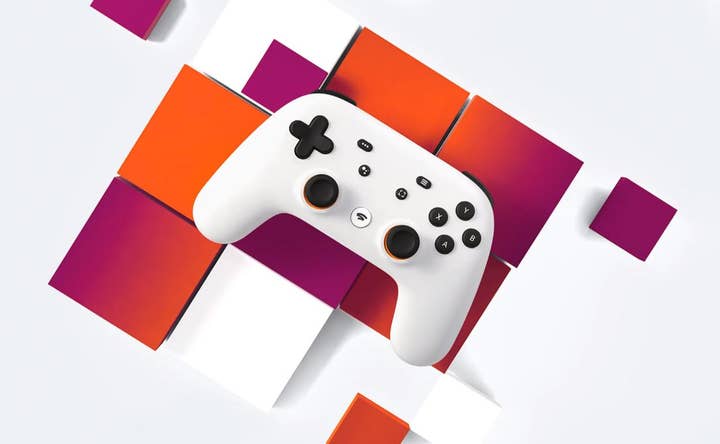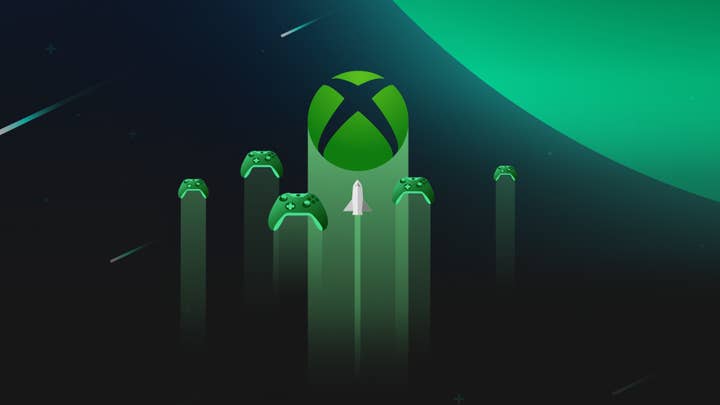Who are Microsoft's "real" competitors? | Opinion
Google and Amazon being the “real” competition for Xbox reveals the tricky balancing act that Microsoft's games team now faces
There is a level -- a long-term, strategic kind of level -- on which Phil Spencer's comments this week about the "real" competition for Xbox being Google and Amazon, not Nintendo and Sony, are not only sensible but actually insightful.
His thinking is aligned with the big picture view for Microsoft, much of whose recent success has been based on the growth and development of the Azure cloud platform. As a consequence, Google and Amazon, the two other cloud services giants, really are the competition for Microsoft writ large. For Spencer to say this as head of Xbox makes clear the extent to which the objectives and rationale of that division currently line up with those of the company as a whole -- the companies which compete with Microsoft are, by this logic, also the most important competition for Xbox.
Yet if we narrow down our focus just a little -- spin the dials so we're just looking at the commercial reality here and now -- what Spencer is saying sounds quite mad. Google's efforts at launching a game streaming empire with Stadia have sputtered their way out the door and promptly faceplanted; Stadia might yet become a major force in the industry, but it will need to recover from a weak, badly received launch (something Microsoft has a little painful experience with) and find a raison d'etre that makes sense for both consumers and publishers, neither of whom seem enthusiastic about it thus far.
"Right here and now, Spencer's Xbox division has competitors, and they're not Google or Amazon"
Amazon has made noises about its interest in games for ages, but this remains little but noise. Amazon, at this point in time, is not in the games business beyond being a retailer. Meanwhile, Nintendo has just swept past 50 million unit sales of the Switch, Sony's PlayStation 4 is outselling every other console in history at this point in its lifecycle with over a 100 million unit sales, and at the end of this year, Microsoft will launch a new Xbox console head-to-head with the arrival of PS5.
Right here and now, Spencer's Xbox division has competitors, and they're not Google or Amazon. It is Nintendo and Sony with whom it will have to fight tooth and nail for every unit of installed base for the Xbox Series X.
This duality is something of an insight into the peculiar and difficult balancing act that the Xbox division has to perform on a daily basis. Spencer and his team know, I'm sure, that much of their job in the near term is convincing people to engage (or re-engage) with Xbox, to treat Xbox Series X as a genuine and legitimate consumer choice to be weighed against Sony and Nintendo's offerings.
They've already made clear that the game they're playing has a somewhat longer horizon and they're willing to sacrifice some immediate gains for their broader strategy -- hence the decision not to make any first-party software Xbox Series X exclusive at the outset, for example. But if anything, that's an example of how they're seeking to differentiate their consumer offering from what Sony and Nintendo are doing, turning Xbox into a primarily subscription-based platform in a way that they hope will eventually give them an advantage over their platform rivals.
Yet while that may be the strategy the Xbox division has adopted towards the consumer market, it's not really the role they play in Microsoft's broader strategy. As far as Microsoft's upper management and its top-level, long-term strategy is concerned, the role of the Xbox is to ensure that the cloud-based future of video games plays out to the benefit of Azure. Nobody but those privy to the meetings involved can know for sure, but it seems likely that it was a pitch to that effect which ensured the survival of the Xbox division at the point when Microsoft's new leadership under Satya Nadella was shifting focus to cloud services and aggressively cutting out under-performing divisions and projects -- including some high profile, consumer-facing ones like Windows Phone -- that didn't tie effectively into that vision.
"Someone, possibly Spencer, persuaded Microsoft that Xbox could be a meaningful pillar supporting the company's cloud business"
Someone, quite possibly Spencer himself, persuaded Microsoft that Xbox could be a powerful and meaningful pillar supporting the company's core cloud business. That means lip service, at the very least, must be paid to the notion that the "real competition" lies in a deeply unproven cloud streaming rival off to a rocky start, plus whatever the hell Amazon is doing, and not in the high-flying game platforms selling tens of millions of hardware units each year, or even in the enormous digital distribution storefronts from Valve and (to a lesser extent) Epic that dominate PC gaming.
"Lip service" may be a bit harsh. I imagine that Spencer firmly believes what he's saying, not least because the comment about streaming services bringing gaming to seven billion people really is chapter and verse from the game streaming evangelist's handbook. He may even be right, of course -- far, far too early, but destined to be proven right over time. In the short term, though, the reality is that at the end of this year Microsoft is going to launch a new games console and that console is going to have to win the hearts and minds of people eyeing up a PS5, or possibly a Switch, as alternative purchases.

Nobody -- not a single person -- is going to be weighing up an Xbox Series X in ten months' time and thinking "oh, but maybe I'll use Google Stadia instead," or... I don't know, "Amazon is a company that exists so maybe I won't get an Xbox" -- but plenty of them will be making a direct comparison and buying decision between Xbox, PlayStation and Switch. In the here and now, Microsoft's competition in terms of video games is Sony and Nintendo, and its Xbox division needs to look down from the distant, hazy horizon and focusing on the battle right in front of its nose.
"Nobody -- not a single person -- is going to be weighing up an Xbox Series X in ten months' time and thinking 'maybe I'll use Google Stadia instead'"
A complicating factor, of course, is that while Microsoft needs to compete with Sony and Nintendo for consumer hearts and minds -- because Xbox isn't going to be a meaningful pillar of anything if it ceases to be a meaningful video game brand in its own right -- the company would also very much like those firms to be loyal customers of Azure. That's another balancing act that faces the Xbox division; of course it wants people to buy an Xbox Series X over the PlayStation 5, but it's also aware that Sony's gaming division has the potential to be one of Azure's biggest customers.
This isn't a unique situation for Microsoft. I wonder to what extent the company's evolving relationship with Apple, whose devices have in recent years become vital platforms for Microsoft's apps and services, is front of mind for the company as it considers its changing relationship with Sony. From a big-picture view, of course, there's no problem here; Microsoft stands to make money whether consumers opt for Xbox or PlayStation, which is a remarkable position for a company to be in. But for the future health of the Xbox division, there's a secondary set of priorities that definitely involves succeeding in that competitive landscape.
Looming behind all of this is the strong sense that an awful lot of eggs are being put into the game streaming basket here -- and the problem, as with many of these big technology Hail Mary pitches, is that there's a serious risk that since Microsoft's holding a big hammer, it desperately needs the video games business to look like a nail. It would undoubtedly be very good for Microsoft if, as a cloud-centric business, video game streaming became the default, mainstream way of playing games. What's far less clear is whether it would also be very good for consumers, for game creators or for publishers were that to be the case -- especially in the near- to medium-term, during which time the technological and economic argument for streaming over local rendering is going to remain somewhat unconvincing.
Bear in mind that it's 2020 and the consoles launching this year are still going to have drives for physical media. Given how long the transition to downloaded games has taken, despite facing far fewer technological and economic challenges, we can quite reasonably say that even if the ultimate future of games lies in streaming, the actual journey to get there is going to take a pretty long time. For Xbox to maintain its relevance within Microsoft it has to keep selling that dream -- you don't want to be the cloud provider that misses out on being the go-to platform for streaming games! -- but in order to maintain its relevance external to Microsoft, among consumers and creators, it has to actually keep Xbox as a hardware and services platform relevant, well-supported and competitive -- competitive with the actual competition in this space, like Sony, Nintendo and Valve.
I don't envy Spencer and his team for having to balance those two messages and strategies. Go too far in one direction and you end up advocating a strategy that's no longer terribly relevant to where Microsoft sees its future as a company. Drift too far the other way and you end up essentially making the argument that Xbox' success is actually irrelevant because Microsoft can just let its rivals win and focus on earning their cloud business for Azure. Ultimately, Microsoft needs to carve a middle path between those extremes; if it wants to own the future of gaming, it needs to keep its eye on the ball with Xbox in the here and now, and not get distracted by daydreams of who its competition might end up being in a decade's time.









